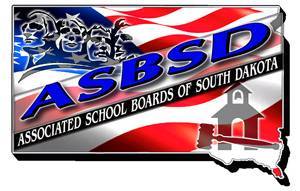The first look at legislation adjusting the capital outlay fund of school districts was had on Tuesday (2/17).
Rep. Justin Cronin introduced House Bill 1207, which would limit revenue collection of the school district capital outlay fund, implements opt-out procedures for the fund and adds $72 per-student to state aid, to the House Taxation committee.
HB 1207 comes after nearly a year’s worth of negotiating between the governor’s office, legislators, representatives from the ag community and educational groups, including ASBSD.
The change proposes limiting revenue growth on the capital outlay fund to three percent or inflation, whichever is higher, plus new construction. It would also institute a base levy for capital outlay of $1.50 per $1,000 valuation.
Rep. Cronin said the change to the production model in valuation of ag land, which he said he does not personally favor, created an “anomaly” that “started to take land values higher.” He noted the capital outlay levy is the only tax levy without restriction.
“I have an issue that there’s no restriction at all,” Rep. Cronin said.
HB 1207 would set a school at the 2014 level of their capital outlay levy, but the levy would drop on a gradual basis due to the limit on revenue. The bill does include a mechanism for school districts to opt-out of the levy for funding above $1.50 per $1,000 of valuation.
Good news associated with the plan includes a proposal to provide a $72 ongoing increase per-student to the education funding formula for the 2015-16 school year, which, with the $96 increase proposed in Senate Bill 53, would result in a 3.5 percent increase to the per-student allocation, setting the PSA at $4,949 for the 2015-16 school year.
A provision may be added to the bill to make the flexibility to use capital outlay dollars to pay for certain general fund expenditures permanent in 2018 and beyond. The provision would come through a gradual decrease in the percent of dollars that could be used with a final landing spot being at 20 percent.
A majority of members of ASBSD’s Board of Directors agreed to support the proposal, but cited taxpayers in their district had not voiced complaints about the capital outlay levy being too high, which was a claim government officials made for the need to adjust the levy and avoid a taxpayer revolt.
House Taxation committee members took testimony from individuals not based in Pierre on HB 1207 at Tuesday’s meeting. Five superintendents took the opportunity to testify in opposition of the bill and also noted they had not received complaints about the levy from their local tax payers.
“This can be dealt with locally,” Harrisburg Superintendent Jim Holbeck told committee members. “We cannot put (schools) all in the same category.”
Rep. Cronin acknowledged the difficulty of a “one size fits all” plan, but said the best decision had to be made with all stakeholders in mind.
“We have to treat the whole state of South Dakota as one school district,” Rep. Cronin said. “We have to make a decision that’s good for everyone.”
The bill hearing for HB 1207 continues on Thursday (2/19) with additional testimony expected.
